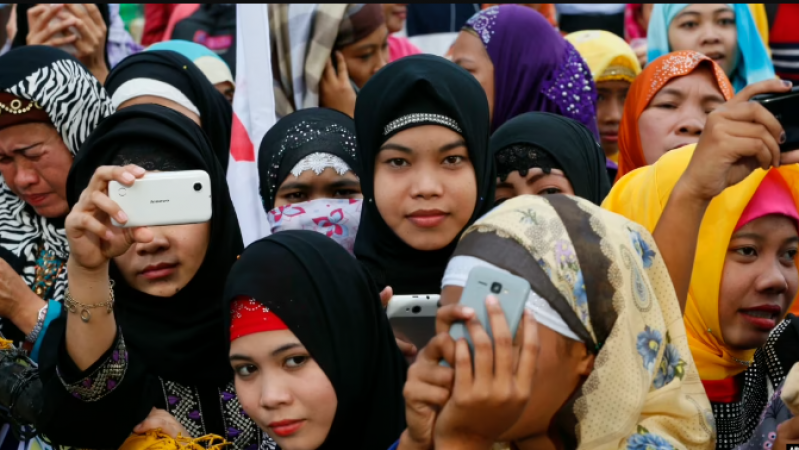
Manila: In order to raise awareness of Muslim culture and traditions in the Southeast Asian nation where a sizable minority professes Islam, a new bill introduced in the Philippine Congress seeks to include the teaching of Arabic in the school curriculum.
In the Philippines, where there are nearly 110 million people and a majority of Catholics, Muslims make up about 5% of the population. The majority of Muslim communities are found on the southern Philippine islands of Mindanao and the Sulu Archipelago, as well as in the province of Palawan in the country's center-west.
On February 9, lawmaker Mujiv Hataman of Basilan in the Bangsamoro Autonomous Region an autonomous, predominately Muslim region of the southwest coast of the island of Mindanao filed the bill in Congress.
Also Read: The UN should request a halt to South Korea-US military exercises, according to North Korea
Increased access for Muslims to "education according to their cultural, traditional, social, and religious beliefs" is the goal of proposed legislation with the number HB 7130.
The Arabic language and Islamic values are currently taught in regular schools in the Philippines through a program called Arabic Language and Islamic Values Education, but it has not yet been fully implemented.
"The ALIVE program offers an elementary school curriculum that is geared toward Muslim students in both public and private schools. According to Hataman, "HB 7130 seeks to institutionalize this curriculum because it currently faces numerous difficulties, including, but not limited to, non-implementation, a lack of funding, a shortage of qualified teachers, and more.
Also Read: Trump claims that a conviction would not put an end to his campaign
"Regardless of the school they attend, if it becomes law, they will be able to learn about the subjects at the primary education (level). It also aims to promote national unity in diversity among Muslim and non-Muslim students and to enrich the Philippine educational system with knowledge of Islamic culture and religion.
The implementation of the program, which shall be optional and at the request of the students' parents, would, in accordance with Hataman's bill, help the learners improve their functional literacy in Arabic while fostering interfaith dialogue, multiculturalism, and tolerance for those who hold different beliefs.
Such legislation has previously been proposed in the Philippines.
To "ensure the contribution of Muslim Filipinos to national goals and aspirations aimed at making them partners in nation-building," Sen. Win Gatchalian introduced a similar bill in the Senate in 2022.
The legislation, in Gatchalian's opinion, would support inclusive education to address students' diversity of needs and guarantee their full participation. Gatchalian is the chairman of the Senate Committee on Basic Education.
While Hataman's bill is now with Congress and awaiting its first hearing, Gatchalian's is still pending in the Senate.
Even though it might take months for senators and congressmen to discuss it, the lawmaker is committed to working for it so that Muslim students can reach their full potential.
Also Read: China anticipates a faster-than-expected increase in GDP of 7.2% in defense spending this year
He declared that it was essential to require the teaching of Arabic and Islamic principles to Muslim students.
We must acknowledge that the varied cultural and religious backgrounds of our students necessitate a more responsive educational approach.